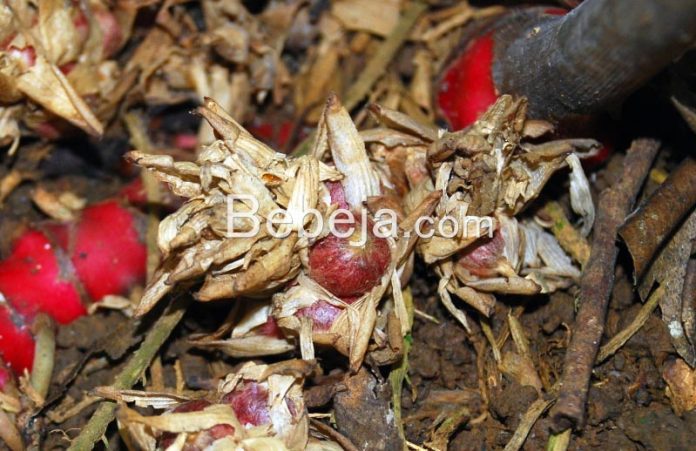A mandatory requirement for successfully growing cardamom (Amomum cardamomum) is a shade tree. This is because the ginger relatives need an environment with a humidity above 70%. Too much sunlight can cause the plant’s leaves to curl and crack.
Some plants can be selected as shade trees, such as sengon, which is planted at intervals of 7 m x 7 m. Cardamom is planted at 2 m x 2 m intervals. The canopy of the sengon (Paraserianthes falcataria) maintains the humidity in which the cardamom grows. The distance between shade trees should not be too narrow, so as not to hinder the growth and production of cardamom.
Besides sengon, other suitable plants include jabon (Anthocephalus cadamba), coconut, lamtoro (Leucaena leucocephala), jackfruit, banana, coffee, and cacao. These shade trees need to be planted in advance, 4-6 months apart. When planting cardamom together, choose fast-growing shade trees such as sengon and jabon.
Research on the effect of shade trees by Dr Ir Prasetyo MS, Department of Agronomy, Faculty of Agriculture, University of Bengkulu, showed that cardamom production is optimal under 70% shade, especially with a 20-30% increase in productivity.
As part of the research, cardamom was planted on one hectare, using sengon as a shade tree. The shade trees are set at 35%, 70%, and no shade. The cardamom variety planted is a 4-month-old local variety, and the fertilizer rate is 100 kg/ha of urea and 200 kg/ha of Triple Superphosphate (TSP).
In the 70% sengon shade, the cardamom leaves are wider, increasing photosynthetic production, and producing more energy and nutrients. Studies also show that 70% shade results in better vegetative growth, faster flowering, and higher production.
